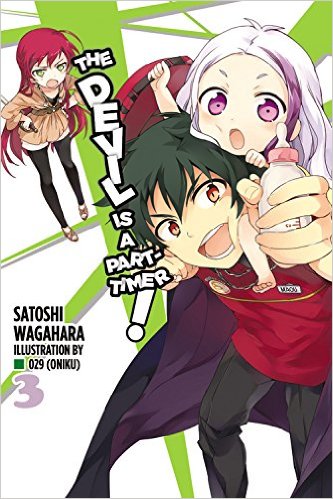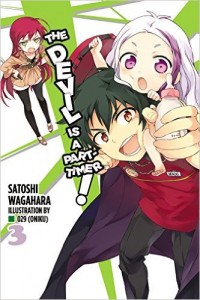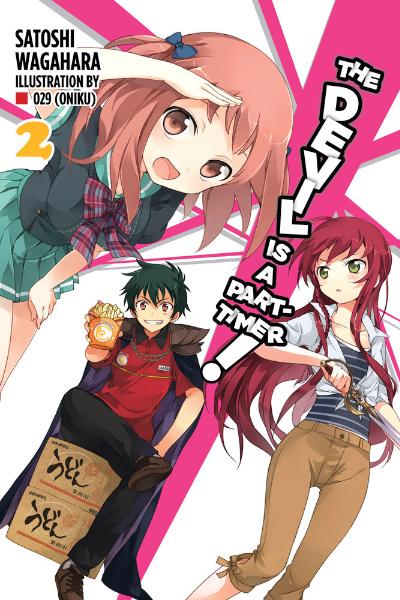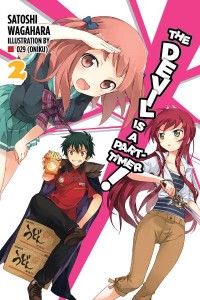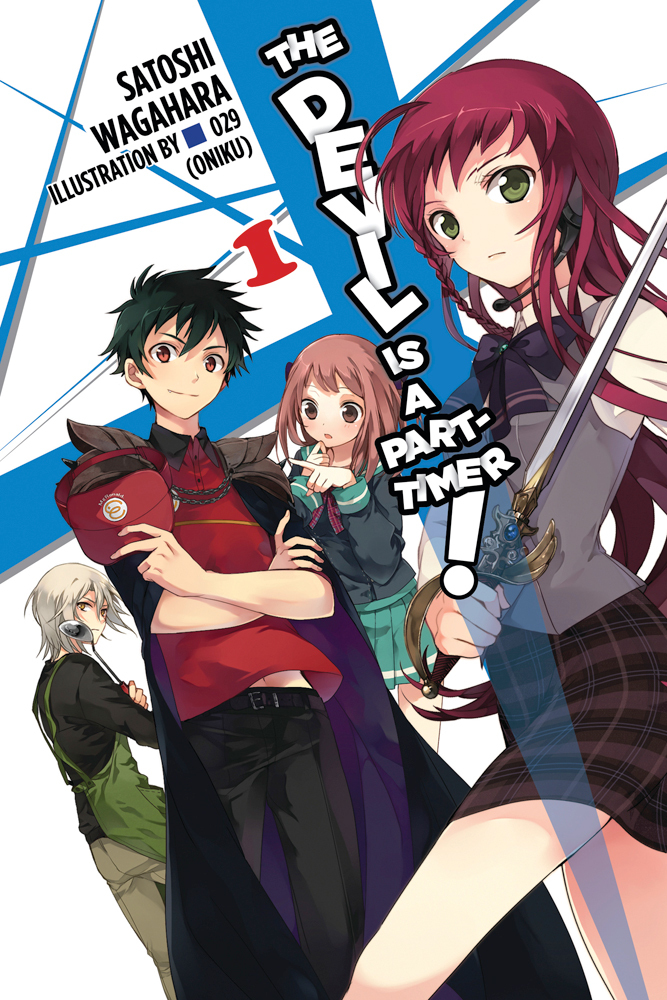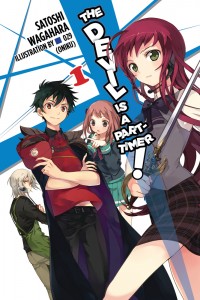By Satoshi Wagahara and 029. Released in Japan by ASCII Mediaworks. Released in North America by Yen Press.
After Sariel proved to be a rather creepy and awful villain in Book 2, I was not going to be surprised if another archangel showed up to make trouble for Maou and company, and sure enough, Gabriel pops up halfway through the book to alternately threaten and be amusing. As with Emeralda, he seems to have some sort of regional accent in the original, which is conveyed by giving him a sort of ‘valley girl’ style voice – if you imagine Poland from the Hetalia books, you’re on the right track. In any case, as a villain he’s merely OK, mostly as we’re used to these guys being taken out fairly easily by now. As a comic character he’s funnier, being a whining slacker who seems to simply be very bad at his job, and he naturally ends up staying in Japan once the book ends.
That said, clearly the more important new character here is Alas Ramus, the magical child who appears from inside an apple (Ringotaro?) and immediately declares that Maou and Emi are her mother and father. She’s cute and clingy, as you’d expect from a girl who acts one year old most of the time, but she’s also a magical macguffin, so is allowed to do things like explain the plot in baby talk. Somewhat less successful is her resolution of the battle with Gabriel, mostly as the author wants to pretend briefly that Alas Ramus is returning to the fantasy world, so we get a brief “oh no, she sacrificed herself” beat. The trouble is that, as I indicated earlier, this isn’t the sort of series that would seriously do that, so of course it turns out she actually merged with Emi’s Holy Sword, which is now even more holy.
The bigger impact that Alas Ramus has is on the pseudo-harem that the books continue to tease. Chiho has a brief crisis of conscience when she realizes that, even after Maou says he depends on her, she still can’t help getting jealous about Maou and Emi raising a child together. (It’s almost as if she’s a teenager or something…) And Emi is again starting to realize that perhaps Maou is not quite the Fantasy Hitler that she wants to imagine him as, and continues to have more of the worldview that she keeps intact in order not to have a complete nervous breakdown kicked out from under her. (The cliffhanger implies the breakdown will not be long in coming.) And Maou gives us some backstory that suggests that most of the atrocities that happened while he ruled Ente Isla were less “I am evil” and more “I wasn’t really paying attention to my underlings”. And, more importantly, that he bitterly regrets that was the case. This is the best part of the book.
So while I don’t think this was quite as good as the first two books, it’s still very entertaining, and also continues the story past the anime, for those who hate to read already adapted novels. And the prose style, particularly the snarky narration, is excellent – as I’ve said before, this is one of Yen On’s smoothest translations. Definitely a fun read.
